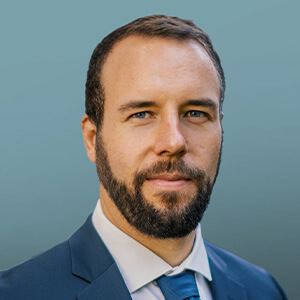
Sleep Smarter, Perform Harder: Mike Interviews Sleep Specialist Andrew McGinn
Home | Podcast | Be Our Guest | Personalities | Partnership

Andrew McGinn is a Sleep Coach at Sleep and Brain, a clinic specializing in personalized sleep and brain health solutions for children and adults. He is a Registered Polysomnographic Technologist (RPSGT) certified by the Board of Registered Polysomnographic Technologists. As a leading expert in the Open Source CPAP Analysis Reporter (OSCAR), Andrew supports thousands of individuals in optimizing their PAP therapy using data-driven strategies to improve sleep and quality of life.
Here’s a glimpse of what you’ll learn:
[2:22] Andrew McGinn shares his experience with sleep apnea and how it led him to specialize in sleep medicine
[5:38] Why anyone experiencing poor sleep should get a sleep study and how tests vary in accuracy
[9:08] Common causes of sleep apnea, including skeletal structure, soft tissue, and obesity
[11:39] The challenges of diagnosing and treating sleep apnea
[15:56] How people can take control of improving their sleep when traditional medicine falls short
[19:23] Understanding sleep data, including oxygen and heart rate patterns, respiratory efforts, and airway obstructions
[31:22] Various treatment options for sleep apnea, including CPAP, oral devices, and surgery
[34:35] Andrew reflects on his jaw surgery and the recovery process
[41:06] How Sleep and Brain provides comprehensive sleep evaluations
[52:39] The role of restorative sleep in recovering from health issues
In this episode…
Most people think poor sleep is just a sign of stress or aging, but what if it’s a hidden health issue affecting everything from your energy to your mood and long-term performance? Sleep is the foundation of recovery, focus, and longevity, yet it’s often misunderstood and overlooked. What causes broken sleep, and how can you take control when traditional medical advice falls short?
According to sleep coach and technologist Andrew McGinn, rest begins with understanding what’s happening inside your body each night. Sleep quality is shaped by airway health, breathing patterns, and even how your skeletal structure developed as a child. Andrew advises getting a detailed sleep study, tracking oxygen and heart-rate data, and using these insights to guide personalized interventions — from adjusting CPAP settings to improving nasal breathing and sleep environment. The key is blending data, awareness, and small behavioral changes to restore deep, consistent rest.
Tune in to this episode of FuDog.TV as Mike Agugliaro talks with Andrew McGinn, Sleep Coach at Sleep and Brain, about practical ways to detect and correct hidden sleep problems. Andrew discusses the root causes of sleep apnea and oxygen drops, how to interpret sleep tracking data, and when to consider advanced solutions like surgery or oral devices.
Resources mentioned in this episode:
Quotable Moments:
“Sleep is probably the best thing that you could do for yourself — regards to performance, your mood, your memory, everything.”
“The people who feel fine but have bad sleep apnea, they're typically CPAP compliance is very low or nonexistent.”
“We're always supposed to nasal breathe, we're nasal breathers. Even running. You should nasal breathe.”
“If you feel good in the morning and you feel creative and you're excited to get on with your day and you feel that you have energy, things are more than likely going well with your sleep objectively.”
“Our body comes with the full suite of repair tools. We just need to give it the proper inputs and make sure it's working.”
Action Steps:
Get a detailed sleep study: Understanding your sleep patterns through accurate data reveals hidden breathing disruptions and oxygen drops that standard tests often miss. Knowing your baseline helps you make informed, measurable improvements.
Track and review nightly sleep data: Monitoring oxygen levels and heart-rate spikes highlights interruptions that prevent deep rest. These insights allow you to fine-tune equipment, routines, or habits for lasting results.
Prioritize nasal breathing and airway health: Training your body to breathe through your nose improves oxygen uptake and prevents airway collapse during sleep. This small shift can dramatically boost sleep quality and energy.
Adjust your sleep environment for recovery: Keep your room cool, dark, and allergen-free to support optimal circadian rhythm and reduce inflammation. Even minor environmental improvements can lead to major sleep gains.
Combine lifestyle changes with therapy: Using a CPAP, oral device, or surgery alongside exercise and anti-inflammatory nutrition accelerates recovery. A holistic approach addresses the physical and behavioral causes of poor sleep.
Sponsor for this episode...
This episode is brought to you by FuDog Group, a personal development training company.
The FuDog Group provides educational training, resources, and connections to anyone looking to grow.
Most personal development insights taught today only address life’s basic challenges. We share proven next-level strategies and secrets no one else talks about.
We accomplish this through a combination of ancient wisdom and modern insights laser-focused on helping you enhance all areas of your personal life, including health, relationships, and wealth.
To learn more about how FuDog Group transforms humanity, visit https://fudoggroup.com/.
